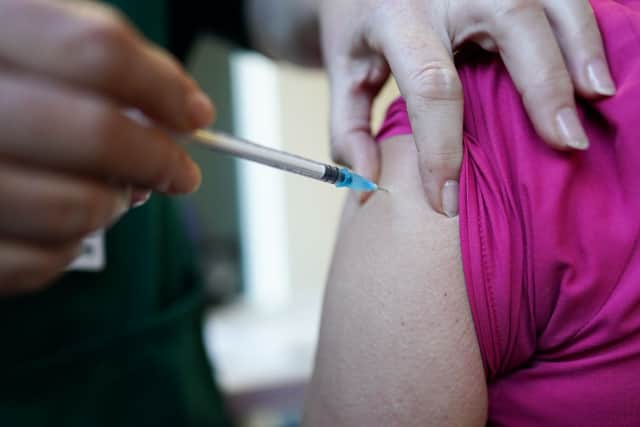Valneva Covid vaccine: where is sixth approved coronavirus jab made, who owns it, and how effective is it?
and live on Freeview channel 276
A new Covid vaccine that may be more effective for longer has been given regulatory approval by the Medicines and Healthcare products Regulatory Agency (MHRA).
The UK had been due to receive 100 million doses of the vaccine in September last year, but the government cancelled the deal due to a “breach of obligations”.
Advertisement
Hide AdAdvertisement
Hide AdThe independent medicines regulator is the first in the world to approve the Valneva vaccine, which becomes the sixth Covid-19 vaccine to be granted an MHRA authorisation.


Who makes the Valneva vaccine?
The new vaccine is made by French biotech company Valneva which specialises in developing and commercialising vaccines for infectious diseases.
The firm is headquartered in Saint-Herblain but has manufacturing sites in Livingston near Edinburgh, Solna in Sweden and Vienna in Austria.
How does the vaccine work?
The Valneva vaccine is the first whole-virus inactivated Covid vaccine to gain regulatory approval in the UK.
Advertisement
Hide AdAdvertisement
Hide AdWith this type of vaccine, the virus is grown in a lab and then made completely inactive so that it cannot infect cells or replicate in the body, but can still trigger an immune response to the Covid-19 virus.
This process is widely used already in the production of flu and polio vaccines.
Much like the Pfizer, Moderna and AstraZeneca vaccines, Valneva requires two doses to trigger a robust antibody response.
It has been approved for use in people aged 18 to 50 years, with the first and second doses to be taken at least 28 days apart.
Advertisement
Hide AdAdvertisement
Hide AdDr June Raine, MHRA Chief Executive, said: “Our approval of the Covid-19 vaccine made by Valneva today follows a rigorous review of the safety, quality and effectiveness of this vaccine, and expert advice from the government’s independent scientific advisory body, the Commission on Human Medicines.”
How effective is it?
The British Medical Journal (BMJ) claims that the vaccine may be “more effective over a longer period of time” as it uses more “conventional” technology.
The BMJ states: "As a whole virus vaccine, it may be more effective over a longer period of time (as more variants emerge) than those vaccines only targeting SARS-CoV-2’s characteristics protein spikes."
In its latest trial last year, Valneva tested the vaccine on 4,012 participants aged 18 and older across 26 trial sites in the UK, including around 3,000 who took part in a comparison with AstraZeneca.
Advertisement
Hide AdAdvertisement
Hide AdResults showed Valneva triggered a stronger immune response and fewer side-effects than the AstraZeneca jab.
In new phase three results reported on Monday (11 April), the Valneva vaccine showed around 40% higher neutralising antibody titer levels compared with the AstraZeneca vaccine in a head-to-head trial.
The company also said its vaccine - VLA2001 - induced broad T-cell responses, which is a part of the immune system believed to be involved in long-term immunity.
Adam Finn, professor of paediatrics at the University of Bristol and trial chief investigator, told a briefing that the figure for the vaccine’s efficacy would come when the jab is used in the population, adding that the jab is expected to be "at least as effective as, and potentially more effective than" AstraZeneca.
Advertisement
Hide AdAdvertisement
Hide AdValneva said the number of Covid cases was similar between participants given AstraZeneca and those given Valneva in the trial, and suggested the absence of any severe cases may indicate that both vaccines used in the study prevented severe symptoms caused by circulating variants, mainly the Delta variant.
Prof Finn said: "The low levels of reactogenicity and high functional antibody responses alongside broad T-cell responses seen with this adjuvanted inactivated whole-virus vaccine are both impressive and extremely encouraging.
"This is a much more traditional approach to vaccine manufacture than the vaccines so far deployed in the UK, Europe and North America, and these results suggest this vaccine candidate is on track to play an important role in overcoming the pandemic."
Comment Guidelines
National World encourages reader discussion on our stories. User feedback, insights and back-and-forth exchanges add a rich layer of context to reporting. Please review our Community Guidelines before commenting.
